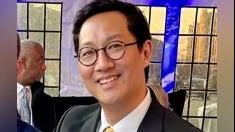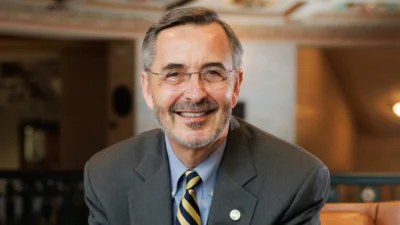Santa J. Ono, Ph.D. President at University of Michigan - Ann Arbor | LinkedIn
Santa J. Ono, Ph.D. President at University of Michigan - Ann Arbor | LinkedIn
Multiple wildfires have been reported across the Los Angeles area, leading to loss of life, property damage, poor air quality, and mass evacuations. Experts from the University of Michigan are available to provide insights into these ongoing events.
Ann Jeffers, an associate professor of civil and environmental engineering at the College of Engineering, emphasized the severe nature of these wildfires due to a combination of dry climate and Santa Ana winds. "The wildfire hazard is one that we need to rethink from an engineering perspective so that we can better assess the risk to communities and plan accordingly," she noted.
Frank Marsik, an associate research scientist in climate and space sciences and engineering, pointed out the unusual drought conditions contributing to these fires. He mentioned that "Southern California has been exceptionally dry this fall and winter" with rainfall far below average levels.
Ruiwei Jiang, who specializes in industrial and operations engineering, highlighted how power distribution grids could contribute to wildfire outbreaks under certain weather conditions. He suggested several preventive measures such as upgrading grid equipment and temporarily shutting off power in high-risk areas.
Jonathan Overpeck discussed the broader implications of climate change on wildfire intensity. "As climate change worsens, so too does the risk of ever larger and more severe wildfires," he explained.
Sue Anne Bell focused on supporting affected communities during emergencies like these wildfires. She stressed addressing both immediate needs and long-term impacts on vulnerable populations such as older adults.
Sara Adar shared her findings on air pollution caused by wildfires. She indicated that particles from agricultural settings and wildfires might be particularly harmful to brain health.
MeiLan Han offered advice for those at high risk due to poor air quality resulting from the fires. She recommended using air filters indoors or wearing protective masks if evacuation isn't possible.
Michelle Riba spoke about providing emotional support during such crises. She advised being mindful of mental health symptoms like anxiety or depression among those affected directly or indirectly by the fires.
Lastly, Polly Gipson Allen suggested using trauma-informed approaches like CALM (Communicate, Active listening, Learn coping strategies) when helping children process their emotions related to traumatic events such as these fires.






 Alerts Sign-up
Alerts Sign-up